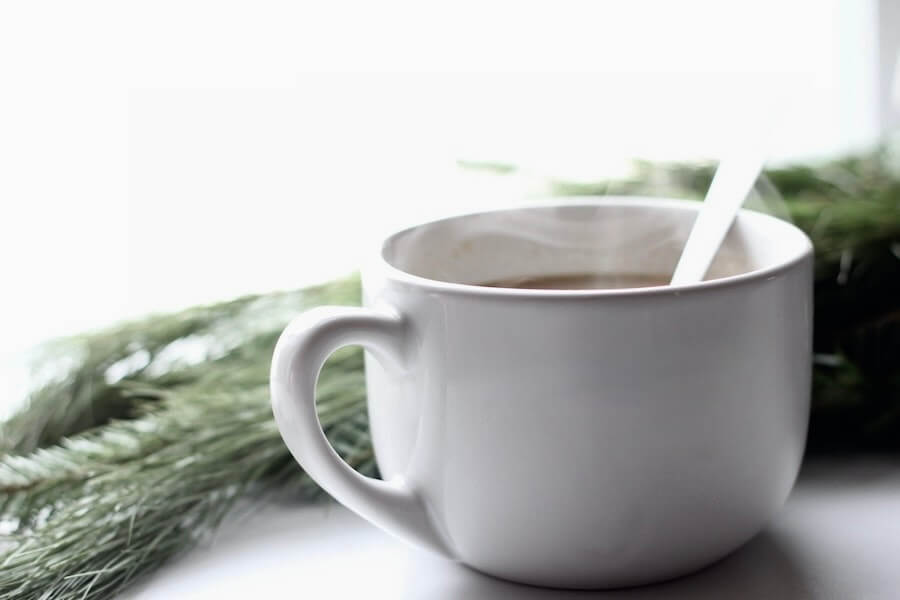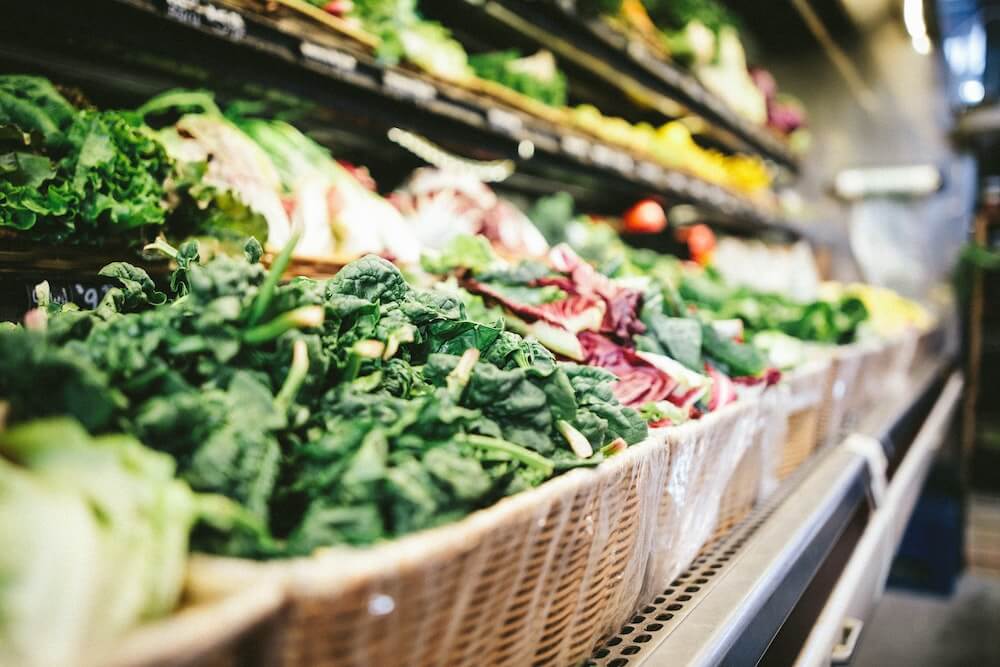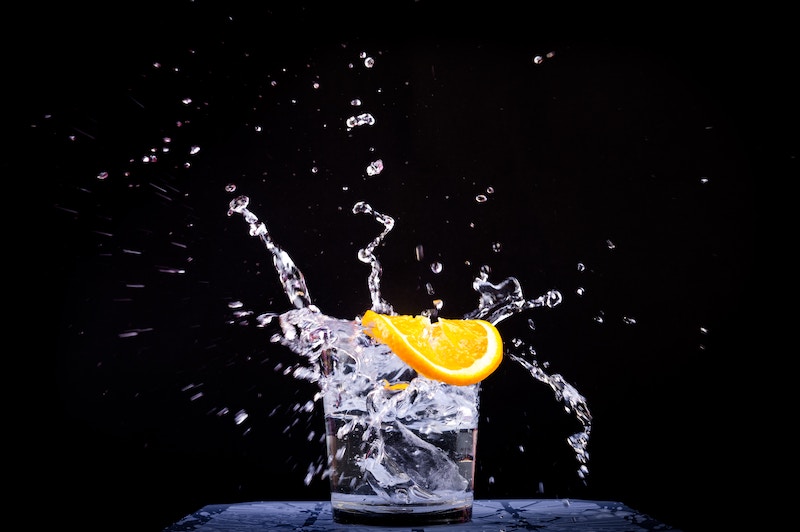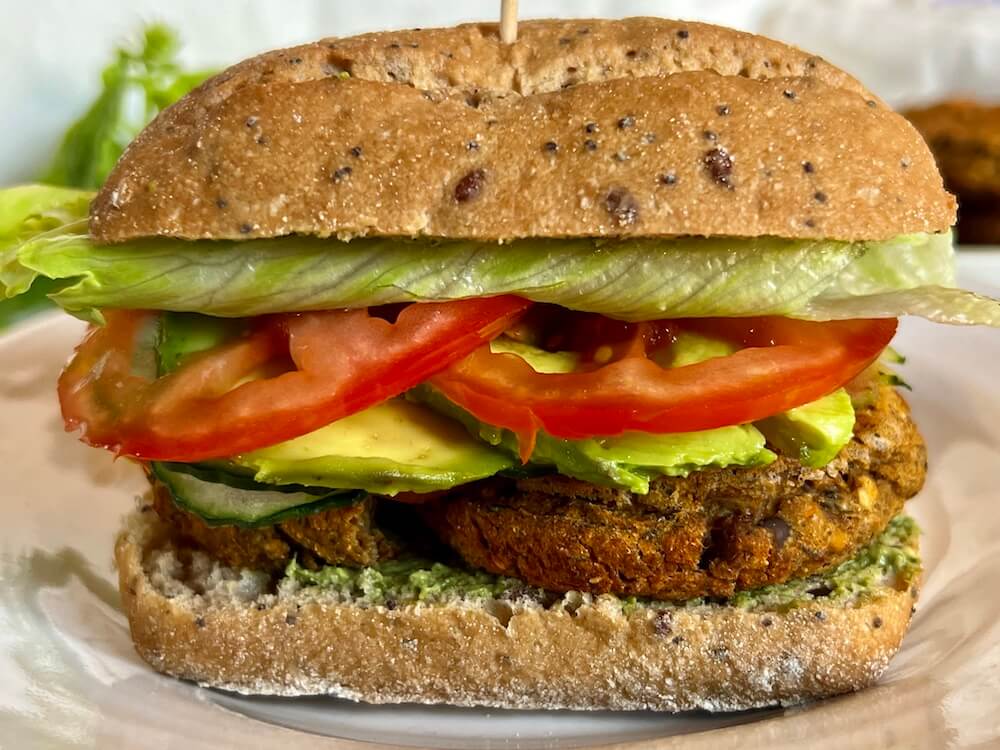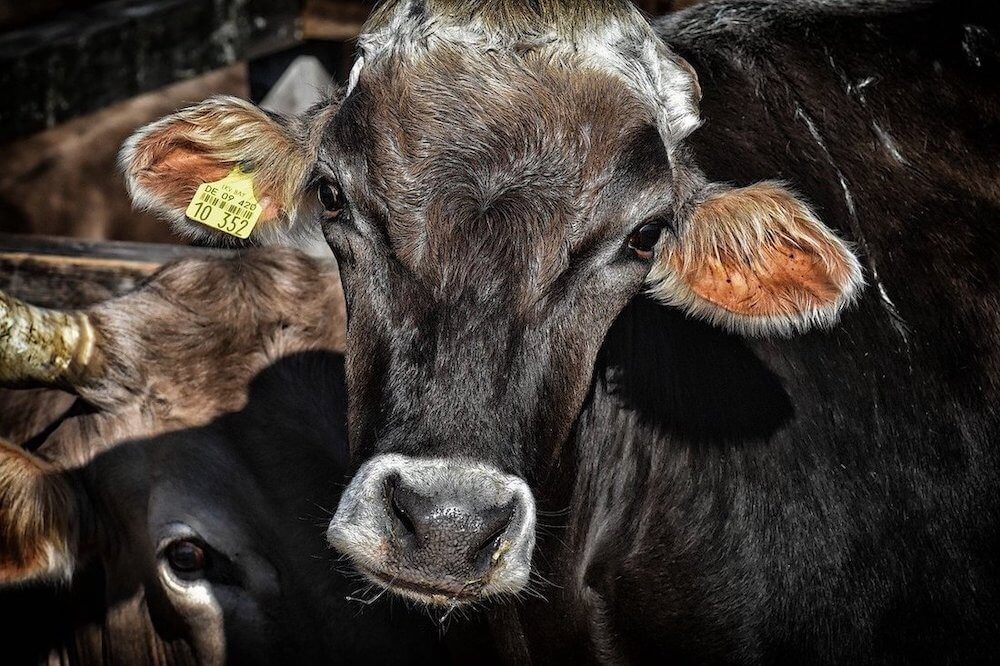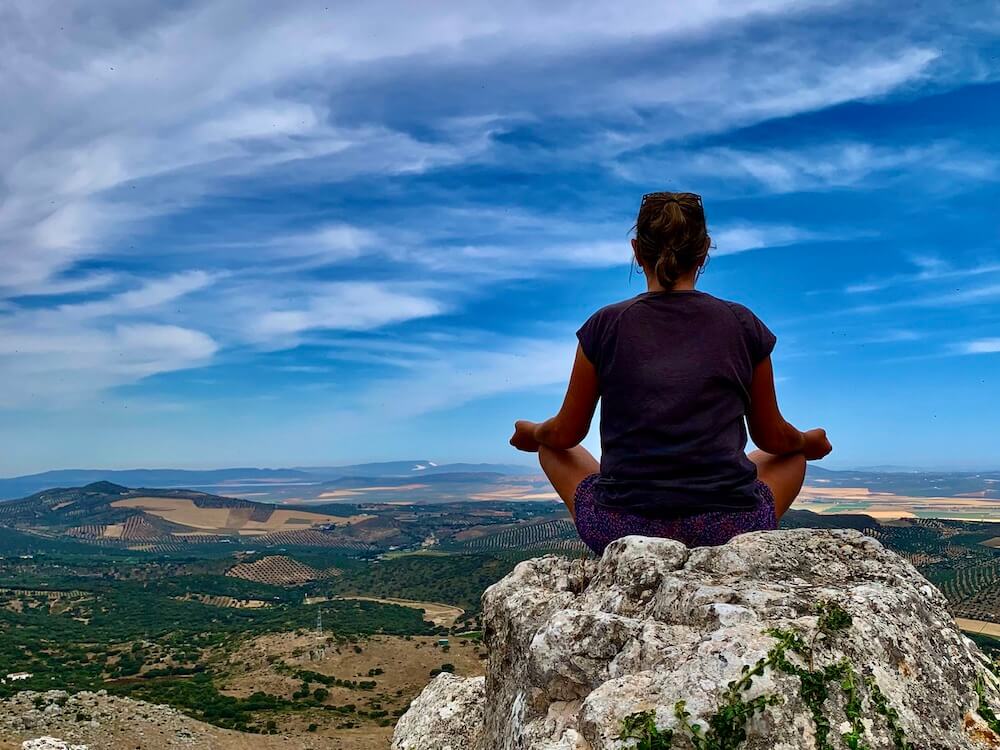Can you drink vegetable broth while fasting?
Without messing up your results, I mean, of course.
You know what?
So many different types of fasting methods mean that there’s no one, single right answer.
By the way, ‘fast’ in this article means extended fasting.
If you’re doing intermittent fasting, like 16:8 for example (which means going 16 hours without eating each day), then it doesn’t make sense to drink vegetable broth in your fasting window.
Because those 16 hours is a window of time for zero calories and zero digestion.
That’s kinda the point of it.
Intermittent fasting can also be 18:6 or 20:4 – or 13:1 which is called OMAD, an acronym for one meal a day.
And if you’re doing OMAD, well you eat your one meal a day, and off you go.
There’s also no need for vegetable broth on OMAD.
And if you’re thinking of doing OMAD long term, it doesn’t have to be every single day: you can swap it out with 16:8 or 18:6 so you won’t be needing to consider broth either.
But in extended fasting, things become a bit more complex . . .
The answer to the question depends on your reasons for fasting and your goals. Because you don’t want to drink anything that will reduce your results.
In this article, we’ll explore the different scenarios where you may want to include vegetable broth in your fasting protocol.
Table of Contents
What’s Your Motivation for Fasting?
So before we continue, how about answering these three questions about your fast . . .
- What motivated you to go on a fast? (spiritual, health, weight loss . . . )
- Are you going this alone, or following a protocol from a group or individual?
- What results are you hoping to achieve?
Let’s look at why these questions matter and how they affect what you can drink during your fasting period.
Fasting has so many benefits. So which one/s are you after?
Have to choose, huh?
I know.
Well, you’re bound to have some reasons that are stronger than the others, even if you do secretly want to have it all!
Motivations for Fasting
Spiritual Fasting
Spiritual fasting’s a way to deny the physical body and focus inwardly on faith and spirituality.
There are hundreds of different branches of spiritual fasting, from personal, individual spirituality, to mainstream group-religious fasting, and everything in between.
So we’re not going to get into the details of all of those.
We’re just here to ask about your motivation . . . is it spiritual?
Fasting for Health
Let’s face it when done right, fasting’s a supremely healthy thing to do.
The health benefits are beyond-belief-incredible, especially when you think how many people would tut-tut you for being unhealthy if they knew you weren’t eating anything for several days.
But before you decide to go overboard with it and fast for more than you can handle, fasting’s only really healthy when done right.
So make sure you prepare effectively and do the right length of fast for your level of experience and comfort.
And if you haven’t fasted before, start with a length you feel good with and build it up each time you fast.
You might be interested to read about making fasting easier by putting some simple strategies into place before you fast.
Health Benefits of Fasting
- Reduce insulin resistance
- Help control blood sugar levels
- Reduce inflammation
- Improve cognitive ability
- Fight chronic disease
- Promote a healthy heart
- Increase longevity
- Help prevent cancer
- Improve metabolic function
- Promote/heal gut health
- Remove damaged cells (through autophagy)
- Reverse obesity or become part of a weight loss or weight management strategy
Whew! Maybe if health wasn’t your driving factor before, it is now!
And it doesn’t stop there.
Fasting can improve your skin and can give you super powers.
Hahaha ok, by super powers I mean that it can boost your sense of self worth or success or satisfaction.
I mean you’re no longer controlled by your food! Wohooo, how freeing is that?
So as an after-effect of a successful fast, you might feel that lots of things are possible, an array of diverse options which you hadn’t considered before.
Fasting for Autophagy
When autophagy starts, your body starts to eat and recycle damaged cells, and some are even triggered to self destruct.
Pretty awesome.
Autophagy really kicks in around the day 3 mark, though it can vary from person to person.
And for autophagy to happen, you need to be on a pretty strict fast with under 20 calories.
Benefits of Long Term Fasting by Dr Françoise Wilhelmi de Toledo
Fasting for Weight Loss
Probably the most common reason for fasting of all three, is weight loss. Which is understandable but also a shame.
Not that it’s a shame to lose weight by fasting, not at all!
It’s just a shame that the other mental and physical health benefits get overlooked.
Fasting for weight loss is fairly self-explanatory: you eat nothing and your body burns fat for energy.
But what a lot of people don’t realise is that you literally flip a switch in your metabolism and once that happens, hunger isn’t an issue any more.
How long it takes to stop feeling hungry when water fasting varies from person to person but it’s usually around the second or third day of fasting.
Your body stops seeking fuel in the form of glucose from outside the body (food) and starts to create its own fat-burning fuel by producing ketones and using these for energy.
So it’s a really cool mechanism that’s just awesome to experience. And if you fast ‘only’ for weight loss, you might keep yourself in the torturous stage by eating some calories and not flipping the switch.
Ketosis and Autophagy are the two incredible processes which kick in to make extended fasting healthy and easier (in my opinion).
Alternatively, in shorter fasts, you’re restricting calories by reducing your eating window. You still get some of the health benefits, but not all of them.
Read more about the benefits of intermittent fasting for vegans.
So, When Can You Drink Vegetable Broth While Fasting?
Having identified your motivation it’s time to get to the bottom of the matter . . .
Can You Drink Vegetable Broth While Spiritual Fasting?
If your motivation is spiritual, the answer will depend on your convictions, your faith, and the organiser of your fast, whether that be you or someone else.
A personal spiritual fast can be governed by your own private beliefs, so you may choose to include some vegetable broth rather than risk stopping the fast, for example.
Maybe you think that by making an oil free onion broth, you can eat it without interfering with your spiritual experience.
But generally speaking, a spiritual fast doesn’t include vegetable broth or any other type of food because the purpose is to focus within, and withhold from the body.
Can You Drink Vegetable Broth While Fasting for Health Benefits?
If you’re fasting for the health benefits and you drink vegetable broth all the way through your fast, you may not reach autophagy and you could stop the production of ketones especially if you drink too much broth or include more ingredients in the broth.
It’s said that you can ingest up to 50 calories a day without reversing the switch-over to ketones and 20 calories a day for autophagy to work. (If you don’t know about the switch over to ketones or autophagy, see the motivation section above.)
But, if you’re doing a 5 day fast, there’s no reason why you can’t choose to include a cup of plain broth on days one and two as you ease into things and to help you get through to day three, when things tend to get much easier.
Even later on in the fast, it would be preferable to drink a cup of broth than to completely break the fast because you felt you couldn’t go on.
BUT a true water fast doesn’t include broth and it definitely isn’t a purists way to do it.
So, are you a purist?
Or are you happy to blend the lines a bit to suit you and your personal journey?
Personally, I like to blur the rules a bit so that they fit with my own individual experience. I think we get the best out of life that way.
You can read about my 5 day fast here.
Can You Drink Vegetable Broth While Fasting for Weight Loss?
Finally, if you’re fasting just to lose weight and you aren’t interested in autophagy, you can drink vegetable broth no problem – as long as you stay in a calorie deficit.
Of course different diets have different rules, but if you’re doing it on your own at home, then go for it.
Make a lovely pan of oil-free vegetable broth and allow yourself a cup whenever you feel it’s necessary.
Can I Drink Hot Marmite While Fasting?
Marmite has 10 calories per teaspoon so in accordance with the above, if you have a cup of hot marmite when you’re on a fast, you shouldn’t break the fast.
BUT it isn’t a pure water fast. Just drop the word ‘water’ and make it a fast and you’re set.
Personally, on my recent 5 day fast, I decided to have a cup of veggie broth with a tiny touch of Marmite in it on days one and two.
But once I felt the switch happen where the body was creating its own fuel, then I didn’t want to spoil it by drinking broth or Marmite.
I wanted to be able to say to myself that I hadn’t eaten anything at all other than drinking herbal teas and water.
So What Can I Drink While Water Fasting?
You can drink water with a sprinkle of Himalayan salts in it to take care of your electrolytes, you can drink herbal teas and some people include black, preferably decaffeinated, coffee.
And I’ll let you in on another tip. Fresh hibiscus tea doesn’t break a fast either. I’m not talking about from a teabag but from the flowers. It’s a delicious rich drink which is quite different to your standard cup of herbal tea.
That way you have a whole range of drinks to choose from and you won’t get bored.
And drinking hibiscus tea has lots of health benefits of its own. It’s delicious hot and cold, so I’d highly recommend including it in your fasting period.
Final Thoughts on Whether You Can Drink Vegetable Broth While Fasting
To be honest, I’ve read a lot on the topic and you can find every answer out there. People who swear on fasting with broth, people who swear that broth is a cheat’s way to fasting and people who say that it has its place.
Just think about it – there’s water fasting, juice fasting, broth fasting, soup fasting, smoothie fasting . . . and within each one of those there’s different ways to apply it, different beliefs.
Science shows that autophagy is a really great way to boost health and increase longevity, even being used to successfully treat chronic diseases.
Ketones are hugely popular for losing weight (hence the Keto diet).
So if you want to benefit from those two things, it’s just a matter of discovering a way to make it work for you, personally.
Finally, don’t forget that one of the biggest factors at play is mental will power and fasting can make you feel good about yourself as you realise just how determined you can be.
Go for it! I’m sure you won’t regret it!
The information given in this article is from my experience and opinion only and it not meant as any technical or medical advice.
